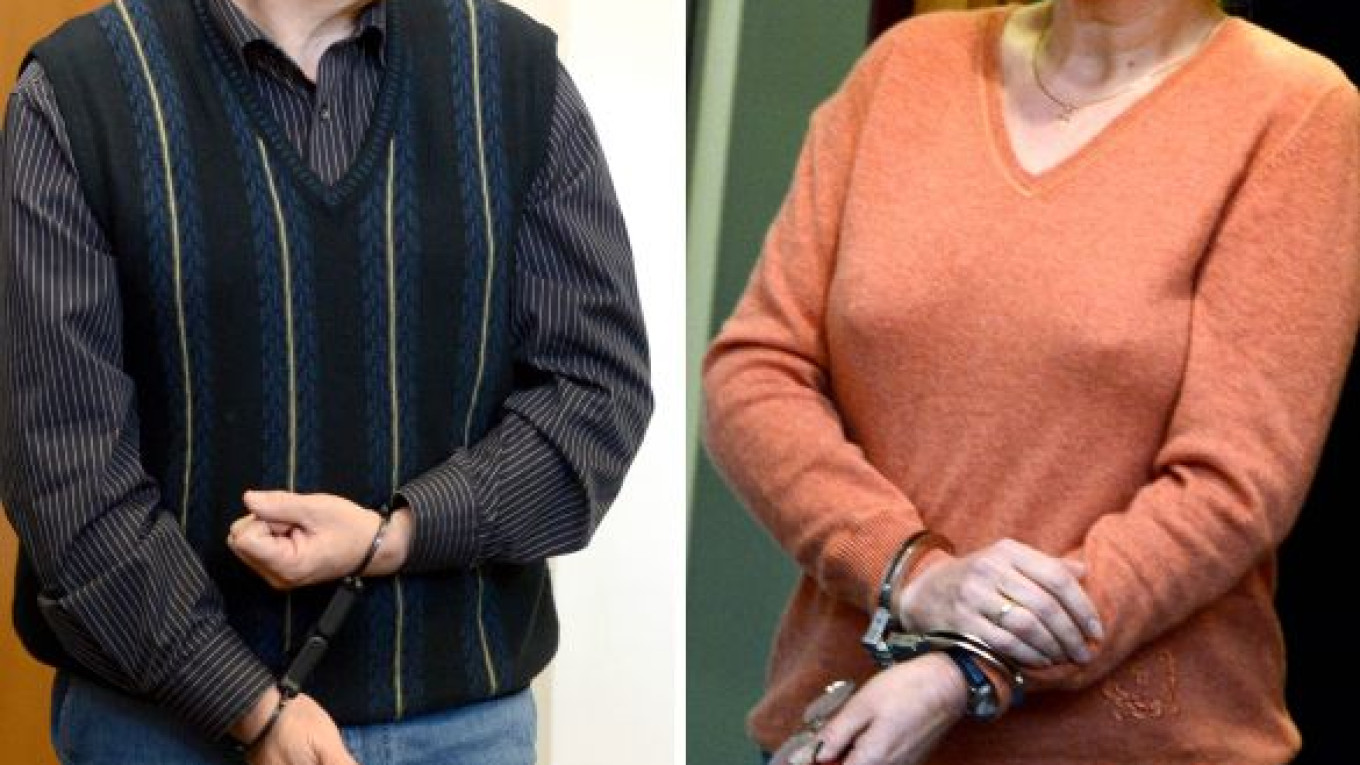Germany put a married couple thought to be in their mid-40s on trial this week on suspicion that they spied for Russia for more than two decades under the cover of being an ordinary middle-class family.
The case of Andreas and Heidrun Anschlag, names believed to be aliases, is likely to add pressure to Berlin's troubled relations with Moscow until June.
The court in the southwestern city of Stuttgart is planning to hold 31 hearings over five months, according to a schedule on the .
Prosecutors say the pair collected sensitive information from NATO and the European Union for Russia's Foreign Intelligence Service while posing as Austrian nationals with Latin American heritage.
Their names and passports are thought to be fake, but the judge said at the initial hearing Tuesday that she would continue to address them as Herr and Frau Anschlag "to make communication easier," local media outlets reported.
The couple, who face up to a decade in prison if convicted, denied guilt but declined to make any further statements. The hearing continued Thursday with the questioning of a federal police investigator, court spokesman Stefan Sch??ler said by e-mail.
The case has been linked to the "deep cover" sleeper agents uncovered in the U.S. in 2010. According to a report by German weekly Der Spiegel, the Anschlags' October 2011 arrest was made possible when the FBI passed on information from Alexander Poteyev, a Foreign Intelligence Service colonel who reportedly acted as a U.S. mole.
Poteyev, who ostensibly betrayed the spy ring even as he ran it, fled Moscow just days before the FBI rolled up the operation on June 27, 2010. In 2011, a Moscow military court sentenced him in absentia to 25 years in prison on charges of treason and desertion.
Analysts have speculated about why the Anschlags' case went to court while the U.S. spy ring was whisked off to Russia within weeks in a Cold War-style spy swap.
German media reported last year that Berlin had decided to press charges after the Kremlin failed to react to a German offer for a spy swap.
Andrei Soldatov, a security expert and founder of the Agentura.ru think tank, said that despite the recent dip in relations, Moscow believes it can get its agents out without a swap.
"They seem confident that their relations are so good that they will get them back after the trial," he said Thursday.
This was echoed by the defendants' lawyer, Horst-Dieter Petschke.
"After the trial ends, a swap will be easier because then all aspects of the case will be clear," Petshcke in an interview aired Tuesday.
Contact the author at [email protected]
Related articles:
A Message from The Moscow Times:
Dear readers,
We are facing unprecedented challenges. Russia's Prosecutor General's Office has designated The Moscow Times as an "undesirable" organization, criminalizing our work and putting our staff at risk of prosecution. This follows our earlier unjust labeling as a "foreign agent."
These actions are direct attempts to silence independent journalism in Russia. The authorities claim our work "discredits the decisions of the Russian leadership." We see things differently: we strive to provide accurate, unbiased reporting on Russia.
We, the journalists of The Moscow Times, refuse to be silenced. But to continue our work, we need your help.
Your support, no matter how small, makes a world of difference. If you can, please support us monthly starting from just $2. It's quick to set up, and every contribution makes a significant impact.
By supporting The Moscow Times, you're defending open, independent journalism in the face of repression. Thank you for standing with us.
Remind me later.


